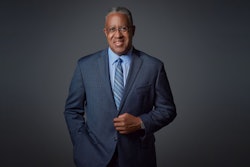 Dr. Vincent Harding was active in groups like the Southern Christian Leadership Conference (SCLC), the Student Nonviolent Coordinating Committee (SNCC) and the Congress of Racial Equality (CORE) in the 1960s.
Dr. Vincent Harding was active in groups like the Southern Christian Leadership Conference (SCLC), the Student Nonviolent Coordinating Committee (SNCC) and the Congress of Racial Equality (CORE) in the 1960s.
By most accounts, Dr. Vincent Harding was prolific, penning classic texts such as There is a River: The Black Struggle for Freedom in America and Martin Luther King: The Inconvenient Hero even as he held down teaching positions at institutions like Spelman, the University of Pennsylvania, Swarthmore and Temple University.
But the classroom was his second calling.
Harding was primarily an activist, who lent his talents and energy to social justice causes, moving freely among the South and becoming active in groups like the Southern Christian Leadership Conference (SCLC), the Student Nonviolent Coordinating Committee (SNCC) and the Congress of Racial Equality (CORE) in the 1960s.
News of his death at the age of 82 came as a blow to the legions of activists and scholars who worked with him over the years. Yesterday, they paid homage to him as a movement man who tried to make a difference and end racial injustice.
“He was a gentle warrior,” remembered Dr. John Bracey Jr., chairman of the W.E.B. Du Bois Department of Afro-American Studies at the University of Massachusetts, Amherst, who pointed out that, despite Harding’s formal training as a historian, he was more of a theologian who was influenced early on by other religious thinkers like Dr. Howard Thurman.
“He knew all that theological stuff, but he never got into theological arguments with you,” said Bracey, who added that, throughout his life, Harding was a devoted Mennonite and a staunch believer in nonviolence.














